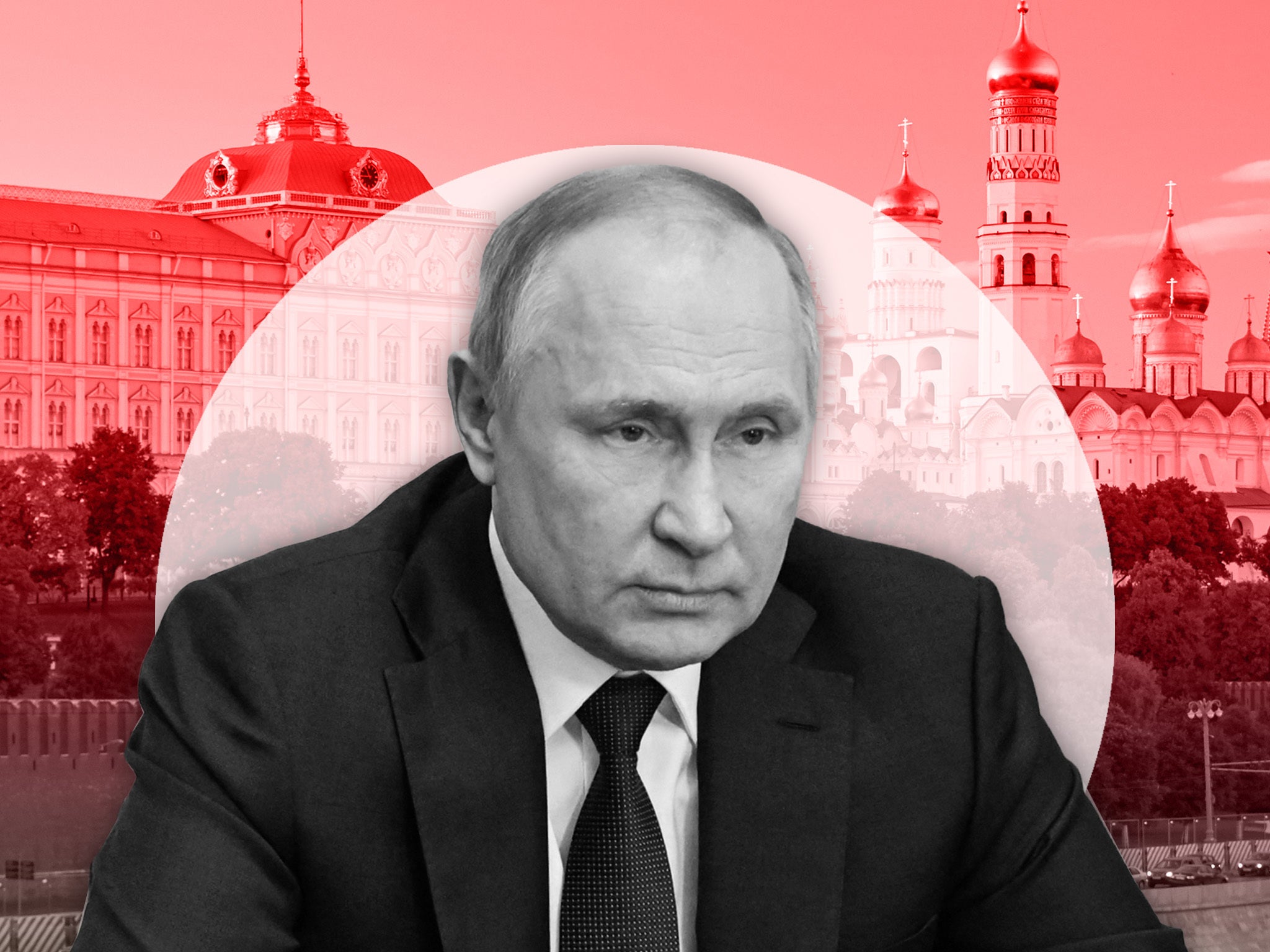How Putin can cling on… even if Russia loses the war in Ukraine
Ukraine – a year of war: The Russian president’s grasp is loosening both on the battlefield and at home, writes Mark Galeoti. But is it really the end of the road?

It is impossible yet to know for sure when and how the war in Ukraine will end, but it is clear that Vladimir Putin will not achieve either his original grandiose goal of installing a puppet regime in Kyiv, nor his fallback of conquering all the regions of south-eastern Ukraine.
Even retaining the territories he was occupying before the February 2022 invasion looks like a difficult, if not wholly impossible task.
Although his myth is irretrievably tarnished and his system of control is in decay, Mr Putin could conceivably survive defeat, and the trajectory of a post-Putin Russia is equally uncertain. Three main variables will be crucial: the fate of Crimea (which Russia illegally annexed from Ukraine in 2014), the speed of that victory, and Western policies.
After all, any leader who cannot hold Crimea is unlikely to be able to hold the Kremlin, and Mr Putin knows this. After all, while it is legally Ukrainian, many Russians feel that it is rightly theirs. The prospect of a direct Ukrainian offensive into Crimea could well panic Mr Putin – a man who doesn't make decisions quickly, and tends towards clumsy over-reaction when he does – into some dangerous escalation. If it simply becomes impossible to sustain, though, because the Ukrainians can cut the overland, sea and bridge connections to the peninsula, then he will face an almost impossible policy dilemma.
The speed of Russian defeat is also likely to be important. Ironically, it may not be the case that the quicker is the better for Ukraine and the world. A rapid collapse of the Russian lines may likewise panic Mr Putin into escalation, whether sending in the 180,000 or so conscripts he has hitherto held back for political reasons or, most worryingly if also least plausibly, using tactical nuclear weapons.
It might also panic the security elite, who are increasingly split, into feeling they have to rally round Mr Putin. Just as importantly, a slow defeat is most likely to demonstrate conclusively to Russia's elite and people alike that Mr Putin's war was as unwinnable as it was unwise.
In the long term, security across Europe is best achieved with a Russia that has finally shed its great power ambitions and come to terms with its post-imperial status. A quick defeat could too easily breed a 'stab in the back' myth that blames incompetent generals or weak politicians, implying that Russia could and should have won, and can do so in the future.
The final obvious variable is Western policy. At the Munich Security Conference last week, France's president, Emmanuel Macron, rightly warned that every attempt at enforced regime change has been a disaster. This is not just about what to do with Mr Putin, though, but all Russians.
If people across the country are all treated as Mr Putin's willing co-conspirators in aggression and abuse, this actually strengthens his hand. Central to his propaganda is the conceit that the West simply hates Russians, and so like it or not, they must resist, something the sanctions regime has perversely only reinforced. It also ensures that a new generation of nationalists will likely rise when he does go.
It will be a delicate political challenge, to hold Mr Putin and his regime to task, while trying to ensure Russians as a whole realise we are judging people by their actions, not their passports. Nonetheless, this challenge is also a huge opportunity: by doing what we can to reach out to ordinary Russians, however little that admittedly is at present, we not only build the foundations for more productive future relations after Mr Putin, we also undermine him while he remains in power.
It will ultimately be Mr Putin's constitution or the Russian people who decide when he will go. Meanwhile, he is, after all, losing both on the battlefield and at home. We are doing what we can for the former cause, but there is more we can do for the latter.
Professor Mark Galeotti is an honorary professor at the UCL School of Slavonic & East European Studies and author of ‘Putin's Wars: from Chechnya to Ukraine’ (Bloomsbury, 2022)
Subscribe to Independent Premium to bookmark this article
Want to bookmark your favourite articles and stories to read or reference later? Start your Independent Premium subscription today.

Join our commenting forum
Join thought-provoking conversations, follow other Independent readers and see their replies